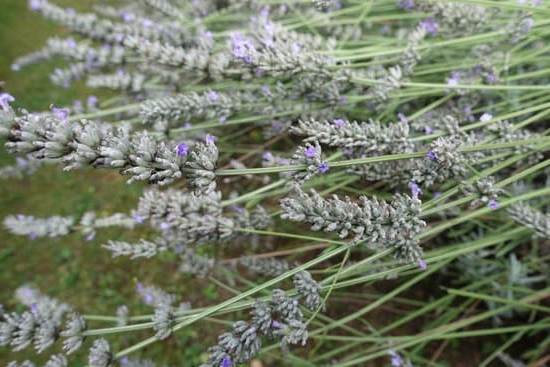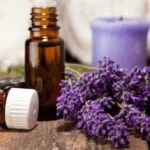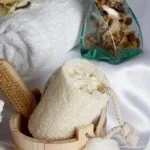Aromatherapy, a form of alternative medicine that utilizes essential oils to promote overall well-being, has gained increasing popularity in recent years. People often turn to aromatherapy as a natural and holistic approach to address various physical and mental health concerns. But just how effective is aromatherapy? This article dives deep into the concept of aromatherapy, examining its historical background, scientific evidence, and the numerous benefits it offers.
Aromatherapy, derived from the Greek word “aroma” meaning fragrance or smell, involves the use of aromatic plant extracts known as essential oils to enhance both physical and psychological well-being. These highly concentrated oils are extracted from flowers, leaves, bark, stems, and other parts of plants through methods such as distillation or cold pressing. The enticing scents emitted by these essential oils can trigger powerful responses in our bodies and minds.
In recent times, there has been a surge in interest among individuals seeking alternative approaches to healthcare. Aromatherapy has emerged as an attractive option for those looking for natural remedies that complement conventional treatments. Whether it’s managing stress, improving sleep quality, alleviating pain symptoms, or boosting mood and relaxation, people turn to aromatherapy with hopes of finding relief.
But does it truly deliver on these claims? Are essential oils capable of bringing about the desired effects? This article aims to answer these questions by delving into the concept of aromatherapy in depth.
As we journey through this exploration of aromatherapy’s effectiveness, we will not only uncover its historical roots but also examine the principles behind it and explore various types and applications. Furthermore, recent scientific research studies will be presented to shed light on the growing body of evidence supporting the therapeutic benefits of aromatherapy.
By understanding the origins, mechanism behind its impact on human physiology and psychology along with compelling research findings; we can gain valuable insights into why aromatherapy has garnered such widespread attention and acclaim.
Historical Background
The use of aromatic plants for therapeutic purposes dates back thousands of years, making aromatherapy one of the oldest forms of holistic healing. The historical background of aromatherapy provides valuable insights into its origins and how it has evolved over time.
Origins and Ancient Civilizations
Aromatherapy can be traced back to various ancient civilizations, including Egypt, China, India, and Greece. In ancient Egypt, essential oils were an integral part of their culture and were used for religious ceremonies, embalming processes, as well as for promoting overall well-being. Egyptian hieroglyphics reveal that aromatic substances like myrrh, frankincense, and cedarwood were highly prized.
In China and India, the use of aromatic plants in medicine has been documented for centuries. Traditional Chinese Medicine (TCM) utilizes essential oils derived from plants to restore balance and harmony within the body’s energy system. Similarly, Ayurveda, the traditional medicine system in India, employs essential oils to promote physical health and emotional balance.
Greek Influence
The Greeks also made significant contributions to the development of aromatherapy. Pedanius Dioscorides, a Greek physician between 40-90 AD, wrote “De Materia Medica,” a groundbreaking medical text that included descriptions of hundreds of plants and their medicinal properties. This work laid the foundation for using aromatic plants therapeutically.
During the Renaissance period in Europe, scholars rediscovered classical Greek texts such as those by Dioscorides and expanded on his knowledge. Physicians like Paracelsus emphasized the importance of using essential oils in medicine for their therapeutic benefits.
Evolution through Time
Over time, different cultures continued to refine and develop their understanding of aromatherapy. With advancements in distillation techniques during the 19th century came better extraction methods for obtaining essential oils from plant material. This led to an increased availability and accessibility of essential oils, further expanding the use of aromatherapy.
Today, aromatherapy has evolved into a comprehensive healing modality that incorporates not only the therapeutic qualities of essential oils but also other techniques such as massage, inhalation, and diffusion. With its rich history spanning across civilizations, aromatherapy has stood the test of time and continues to be a popular holistic approach for enhancing well-being and promoting overall health.
As we delve into the principles behind aromatherapy and how it works, we can gain a better understanding of why this ancient practice remains effective in modern times.
Understanding Aromatherapy
Aromatherapy is a holistic healing practice that utilizes the therapeutic properties of essential oils to enhance physical and mental wellbeing. The principles behind aromatherapy revolve around the idea that aromatic compounds found in plants can have a profound impact on our emotions, mood, and overall health.
These essential oils are extracted from various parts of plants, including flowers, leaves, bark, and roots, through processes like distillation or cold pressing. When inhaled or applied topically, these oils stimulate specific receptors in our sensory system, triggering a cascade of physiological reactions within the body.
The process of how aromatherapy works can be explained by the concept of olfaction. Olfaction refers to our sense of smell and its impact on our brain and body functions. When we inhale a scent, it travels through our nasal cavity and reaches the olfactory bulb, which is responsible for processing smells.
The olfactory bulb then sends signals to different regions of the brain, such as the limbic system – which regulates emotions – and the hypothalamus – which controls hormone production and body temperature. These interactions between scent molecules and our sensory receptors ultimately influence our mood, emotions, memory, and physical responses.
In addition to olfaction, another important aspect of aromatherapy is transdermal absorption. Essential oils can also be absorbed into the bloodstream through the skin when applied topically or during a massage. This allows them to have direct physiological effects on muscles, tissues, and organs throughout the body. For example, lavender essential oil has been shown to reduce anxiety levels when applied to the skin or inhaled due to its calming properties.
Understanding these principles behind aromatherapy provides insight into why this practice has gained popularity as an effective complementary therapy for various ailments and conditions. By harnessing the power of scent and encouraging relaxation or invigoration depending on the chosen oil blend, aromatherapy offers individuals a natural way to support their physical and mental health.
Scientific Evidence
Aromatherapy has gained significant popularity in recent years, with many people turning to this alternative treatment for various health concerns. While aromatherapy is often considered a holistic approach with limited scientific evidence, recent research and studies have started to shed light on its effectiveness. This section will present some of the scientific evidence that supports the benefits of aromatherapy.
One study published in the Journal of Complementary and Alternative Medicine explored the effects of essential oil inhalation on sleep quality among postpartum women. The results showed that participants who received lavender essential oil inhalation experienced improved sleep quality compared to those who did not receive any intervention. This suggests that aromatherapy using lavender essential oil can be an effective method for enhancing sleep.
Another study conducted at the University of Maryland Medical Center examined the effects of aromatherapy on pain relief among patients with cancer. The study found that inhaling a blend of essential oils, including eucalyptus and peppermint, significantly reduced pain intensity compared to a control group. These findings indicate that aromatherapy can provide natural pain relief for individuals dealing with chronic pain conditions.
Furthermore, research has also shown promising effects of aromatherapy on mental health conditions. A randomized controlled trial published in Evidence-Based Complementary and Alternative Medicine investigated the impact of aromatherapy massage using rose essential oil on anxiety levels among patients undergoing cardiac surgery. The results revealed a significant reduction in anxiety levels among participants who received aromatherapy massage compared to those who received only routine care.
These studies highlight the growing body of scientific evidence supporting the effectiveness of aromatherapy for various health concerns. However, it is important to note that more rigorous and well-designed studies are still needed to establish stronger evidence and better understand specific mechanisms behind these therapeutic effects.
| Study | Findings |
|---|---|
| Journal of Complementary and Alternative Medicine | Improved sleep quality among postpartum women using lavender essential oil inhalation |
| University of Maryland Medical Center | Reduced pain intensity in cancer patients using a blend of essential oils for inhalation |
| Evidence-Based Complementary and Alternative Medicine | Significant reduction in anxiety levels with aromatherapy massage using rose essential oil among cardiac surgery patients |
Benefits of Aromatherapy
Aromatherapy is known to offer numerous physical and mental health benefits. The use of essential oils in aromatherapy has been linked to stress reduction, improved sleep, enhanced mood, and increased relaxation. These benefits can have a positive impact on overall well-being and quality of life.
One of the main benefits of aromatherapy is its ability to reduce stress and anxiety. Certain essential oils, such as lavender, chamomile, and bergamot, have calming properties that can help alleviate feelings of stress and promote relaxation. A study published in the Journal of Alternative and Complementary Medicine found that inhalation of lavender essential oil reduced levels of anxiety in participants undergoing coronary artery bypass surgery.
In addition to stress reduction, aromatherapy has also been shown to improve sleep quality. Lavender, in particular, has been studied for its sleep-inducing properties. A study published in the Journal of Clinical Nursing examined the effects of lavender oil on sleep quality among elderly patients in a nursing home. The results showed that those who received lavender oil inhalation had improved sleep quality compared to those who did not receive aromatherapy.
Moreover, aromatherapy can have a positive impact on mood and emotional well-being. Citrus oils like lemon and orange have uplifting properties that can improve mood and reduce feelings of depression. A study published in Complementary Therapies in Medicine evaluated the effects of a citrus fragrance on mood states and immune function in healthy volunteers. The results showed that exposure to the citrus fragrance led to increased positive feelings and decreased negative feelings.
Overall, aromatherapy offers a wide range of physical and mental health benefits that can contribute to improved well-being. From reducing stress and anxiety to improving sleep quality and enhancing mood, this holistic therapy has gained popularity for its effectiveness in promoting overall wellness.
| Physical Benefits | Mental Health Benefits |
|---|---|
| Reduces stress and anxiety | Improves mood and emotional well-being |
| Enhances relaxation and promotes sleep quality | Reduces feelings of depression |
| Relieves headaches and migraines | Boosts cognitive performance and focus |
Different Types of Aromatherapy
Aromatherapy involves the use of essential oils to promote physical and mental well-being. Essential oils are highly concentrated plant extracts derived from various parts of plants, such as flowers, leaves, bark, and roots. Each essential oil has its own unique properties and benefits. In this section, we will explore the different types of essential oils commonly used in aromatherapy and the various methods of application.
Popular Essential Oils
There is a wide range of essential oils available for use in aromatherapy, each with its distinct aroma and therapeutic properties. Some of the most popular essential oils include lavender, peppermint, eucalyptus, tea tree, lemon, chamomile, and rosemary. Lavender is known for its calming effects and is often used to reduce anxiety and promote relaxation. Peppermint is invigorating and can help alleviate headaches and improve focus. Eucalyptus has a refreshing scent that can relieve congestion and respiratory issues.
Methods of Application
Aromatherapy offers various methods of application to enjoy the benefits of essential oils. One common method is inhalation through diffusion or direct inhalation from a bottle or tissue. Diffusers release the aroma into the air, allowing you to breathe in the scent. This method is convenient for creating a soothing ambiance at home or in offices and can be especially beneficial for respiratory conditions.
Another popular method is topical application through massage or adding essential oils to bath water. When applied topically, essential oils are absorbed through the skin and may provide localized relief for pain or inflammation. It’s important to note that some essential oils require dilution with carrier oils before direct skin contact.
Additionally, aromatherapy can be incorporated into everyday activities such as taking a relaxing bath by adding a few drops of your preferred oil to warm bathwater or applying diluted oil blends to pulse points like wrists or temples. These methods allow for easy integration of aromatherapy into daily routines, enhancing overall well-being.
Choosing the Right Essential Oil and Method
When selecting an essential oil, it’s crucial to consider your specific needs and preferences. Each essential oil has its own set of benefits and potential side effects, so research is essential to ensure safe and effective use. Some oils may not be suitable for pregnant or nursing women or individuals with certain medical conditions.
Experimenting with different oils and methods of application can help you determine which ones work best for you. It’s important to follow recommended dosages and guidelines provided by experts in the field or consult a qualified aromatherapist for personalized advice.
With the wide variety of essential oils available and multiple methods of application, aromatherapy offers a versatile approach to promoting overall well-being. By exploring the different types of aromatherapy and finding what works best for you, you can integrate this practice into your daily life and experience its many benefits.
Practical Application
Aromatherapy is a versatile practice that can be easily incorporated into daily life for maximum effectiveness. There are various ways to utilize the benefits of aromatherapy, depending on individual preferences and needs. Whether you prefer a calming scent before bedtime or an energizing aroma to boost productivity during the day, there is an aromatherapy method suitable for everyone.
One practical application of aromatherapy is through the use of essential oil diffusers. These devices disperse essential oils into the air, filling a room with a pleasant and therapeutic scent. Diffusers come in different forms such as ultrasonic diffusers, which use water to disperse the oils, or heat-based diffusers that rely on warm air to release the fragrance. This method allows for a continuous and subtle diffusion of aromatherapy benefits throughout your home or workspace.
Another way to incorporate aromatherapy into daily life is through topical application. Mixing a few drops of essential oil with carrier oils like coconut or jojoba oil creates a massage blend that can be applied to specific areas of the body for targeted effects.
For example, lavender oil mixed with a carrier oil can be massaged onto temples and wrists to promote relaxation and reduce stress. It’s important to always perform a patch test before applying any essential oils topically and consult with professionals if you have any specific health concerns.
Lastly, incorporating aromatherapy into self-care routines is another effective way to enjoy its benefits. Adding a few drops of essential oil in bathwater not only enhances relaxation but also nourishes the skin and helps alleviate muscle tension.
Additionally, creating your own personalized body sprays by mixing essential oils with water in a spray bottle can provide all-day refreshment and invigoration. You may find yourself feeling more uplifted and rejuvenated throughout your day after incorporating these simple yet effective practices.
Overall, there are various practical ways in which one can incorporate aromatherapy into their daily life for maximum effectiveness. From the use of diffusers, topical application, to enhancing self-care routines, aromatherapy can easily be tailored to individual needs and preferences. By exploring and experimenting with different methods, individuals can find the most effective ways to incorporate aromatherapy into their daily routine and enjoy its numerous benefits.
Safety and Precautions
Aromatherapy, like any other form of treatment, should be used safely and with caution. While essential oils can offer various benefits, they also come with potential risks if not used properly. It is important to be informed about safety guidelines and precautions when using aromatherapy to ensure a positive and safe experience.
Here are some key safety considerations and precautions to keep in mind when using aromatherapy:
- Dilution: Essential oils are highly concentrated substances and should never be applied directly onto the skin without proper dilution. It is recommended to use a carrier oil such as jojoba, almond, or coconut oil to dilute the essential oil before applying it topically. The appropriate dilution ratio will depend on the specific essential oil and purpose of use.
- Allergies and Sensitivities: Some individuals may be allergic or sensitive to certain essential oils. Before using an essential oil, it is advisable to perform a patch test on a small area of the skin to check for any adverse reactions. Additionally, people with asthma, allergies, or respiratory conditions should exercise caution when using certain strong-smelling essential oils.
- Avoid Ingestion: Ingesting essential oils can be harmful as they are potent substances that can have adverse effects on the body’s systems. It is always recommended to consult with a qualified aromatherapist or healthcare professional before considering ingesting any essential oil.
- Pregnancy and Children: Certain essential oils may not be safe for pregnant women or young children. It is crucial to research specific essential oils and their safety profiles during pregnancy or when used around children before incorporating them into your aromatherapy routine.
- Quality and Purity: Ensure that you are purchasing high-quality essential oils from reputable sources. Look for pure, organic, and therapeutic-grade oils that have been tested for quality standards. Cheap or adulterated oils may not provide the desired benefits and could potentially cause harm.
By following these safety guidelines and precautions, you can enjoy the benefits of aromatherapy while minimizing any potential risks. It is always advisable to consult with a qualified aromatherapist or healthcare professional for personalized advice and guidance based on your individual circumstances and health concerns.
Conclusion
In conclusion, aromatherapy has proven to be an effective and valuable practice for promoting physical and mental well-being. Throughout history, it has been utilized by different cultures and its popularity continues to grow today. Aromatherapy works on the principles of inhaling essential oils to stimulate the brain and evoke positive physiological responses in the body.
Recent scientific evidence supports the effectiveness of aromatherapy in various areas of health and wellness. Studies have shown that it can reduce stress and anxiety, promote relaxation, improve sleep quality, alleviate pain, enhance mood, boost cognitive function, and even strengthen the immune system. These benefits make aromatherapy a versatile tool for self-care and holistic healing.
To incorporate aromatherapy into daily life effectively, there are various methods and types of essential oils to choose from. Essential oils such as lavender, peppermint, chamomile, and citrus scents are commonly used for their soothing properties. Different methods like diffusers, bath salts, massage oils can be used depending on personal preference.
While aromatherapy offers many benefits, it is crucial to practice safety precautions when using essential oils. Some individuals may have allergies or sensitivities to certain scents or ingredients. It is important to consult with a qualified professional or do thorough research before using any essential oil. Additionally, proper dilution techniques should be followed to prevent skin irritation or other adverse reactions.
Frequently Asked Questions
Does aromatherapy have any real benefits?
Aromatherapy is a practice that utilizes essential oils to promote physical, mental, and emotional well-being. While scientific research on aromatherapy is still limited, there is some evidence suggesting potential benefits. For example, certain essential oils like lavender have been found to have calming properties that can aid in relaxation and sleep.
Peppermint oil may help relieve headaches or improve digestion. However, it’s important to note that individual responses to aromatherapy can vary, and more research is needed to fully understand its benefits.
How effective is aromatherapy for anxiety?
Aromatherapy has been explored as a complementary therapy for anxiety management, and some studies suggest that certain essential oils might have a positive impact on anxiety symptoms. Lavender oil, in particular, has shown promise in reducing anxiety levels and promoting relaxation when used in aromatherapy.
Inhalation of lavender oil vapor or applying it topically may help individuals manage anxiety symptoms temporarily. However, the effectiveness of aromatherapy for anxiety can be subjective and may vary from person to person.
How fast does aromatherapy work?
The speed at which aromatherapy works can differ based on several factors such as the method of application, individual response, and the specific essential oil being used. Inhalation through diffusers or direct inhalation tends to provide relatively immediate effects due to the close proximity to the olfactory system, which has a direct connection with the brain’s limbic system involved in emotions and memory processing.
Topical application may take slightly longer as it needs time for absorption into the skin before reaching the bloodstream. The effects of aromatherapy are often felt within minutes but can also last for varying durations depending on personal sensitivity and the specific oil used.

Are you looking for a natural way to improve your health and wellbeing?
If so, aromatherapy may be the answer for you.




